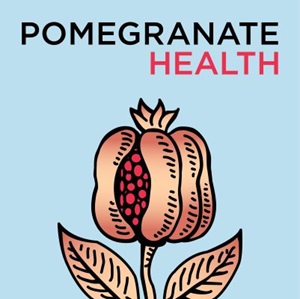Pomegranate Health
A podcast about the culture of medicine.

You'll hear clinicians, researchers and advocates discuss all aspects of professionalism and quality improvement in healthcare. This includes clinical ethics, diagnostic bias, better communication and more equitable systems.
For a sampler of these diverse themes of professional practice take a listen to Episode 132 and Episode 125.
If RACP is your CPD home, you can log time spent listening to each episode with the "Add activity to MyCPD" button. And if you're a Basic Physician Trainee, the [Case Report] series might help you prepare for your long case clinical exams.
This is also the home of [IMJ On-Air], featuring authors from the Internal Medicine Journal sharing their latest research. Meanwhile, the [Journal Club] episodes give RACP members a place to talk through their research published in other academic journals.
Feel free to leave feedback in the comments section for each episode or send it to us via email at podcast@racp.edu.au.
Latest episodes
Ep83: Loving Medicine Again
We continue the theme of responding to burnout by getting some of advice from doctors turned career coaches. We also hear from a respected occupational physician, and a listener with an simple message to raise morale between colleagues.
Ep82: Coming back from Burnout—Congress 2022
At Congress 2022 physicians shared the dramatic adversities that had forced them to take charge and rethink their roles in medicine. Burnout should be considered not as a mental health condition but as an occupational disorder that requires collective responsibility.
Ep81: Advocacy from the Top
This episode features two physicians who took advocacy to the next level and ran for Federal Parliament. They explain the process of getting health policy heard and how to push it through the Canberra machine and onto the political agenda.
Ep80: Healthcare in a Volatile Climate
Australia will warm by more than three degrees by the end of the century with a direct impact on heat-related morbidity. It will also experience more frequent natural disasters and the RACP is calling for national coordination to help the health care system adapt.
Ep79: Melanoma vs the Double-Edged Sword
Immunotherapy has revolutionised care for patients with advanced melanoma but it’s not possible to identify responders in advance. We explore conversations with patients around expectations for prognosis and toxicity.
Ep78: The Advocate’s Journey
The three word mission statement of the RACP is Educate - Advocate – Innovate. In this podcast we hear from physicians who have taken up a cause, and how the College can help amplify the message.
Ep77: Deciding with Children
When can a child be considered to have autonomy to make healthcare decisions for themselves? How should responsibility for difficult decisions be shared between the patients, the parents and clinicians? And is it possible to minimise the moral injury when the wishes of the patient need to be over-ruled?
Ep76: Making Amends- Medical Injury Part 3
In Australia, litigation is the only way for victims to get financial compensation for the medical injury. New Zealand, by contrast, operates a no-fault scheme where the costs of hardship and ongoing care are born by the government for many harms incurred in healthcare.
Ep75: Feeling Guilty- Medical Injury Part 2
Perhaps the greatest barrier to incident disclosure is culture of medicine itself. This podcast explores the guilt that can come about from having caused harm, and the cognitive dissonance this creates in one’s professional identity as a healer.
Ep74: Saying Sorry- Medical Injury Part 1
Medical injury occurs at a rate of about 12 per cent of admissions but is often not disclosed to patients or their families. This podcast explores why practitioners may be fearful of admitting to errors and how victims want the health system to make amends.